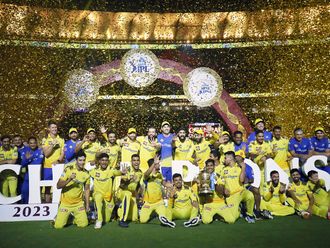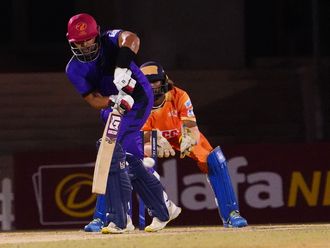
The new impact player rule is interesting. It certainly adds a new twist to the Indian Premier League. That’s why I’m looking forward to it. I’m sure it will have an impact on IPL 2023.
In simple terms, the impact player rule is nothing but substitution. Unlike other sports such as football, basketball and rugby, substitution in cricket was restricted to the fielding side. And the substitute fielder does just that: he or she helps only in fielding.
That was until the concussion substitute rule kicked in. The tragic death of Australian batsmen Phil Hughes led to the rule where a batter hit on the head will be evaluated for a concussion. If he or she fails the test, they will be replaced by another player.
How the rule will impact tactics
The impact rule is different. It’s a full-fledged substitution, where one player will be replaced by another at any stage of the game. The replaced player will take no further part in the game while the replacement assumes full duties.
This will allow for a swift change in tactics. A side packed with powerhitters can arrest a batting collapse with a steady batter midway through the match. Or a powerhitter can be drafted in to provide a late innings impetus.
Similarly, if the pitch spins or seams more than expected, the bowling can throw in an extra bowler, who can exploit the conditions. So it adds a new dimension to the game, which is why I’m excited.
■ Teams have to name four substitutes while announcing their playing XI before the toss. One of the four can used as the impact player.
■ The impact player can be an overseas player only if the team had fielded less than four overseas players, which is rare. That means more often the impact player will be an Indian.
For example, if the Chennai Super Kings top order collapses, they could bring in a solid batter like Ajinkya Rahane to stem the tide. Or, if the Gujarat Titans need quick runs, they could replace a player with a batter like Abhinav Manohar, who can strike some lusty blows.
More thought will go into the makeup of the teams now. The side batting first will definitely pack an extra batter, who can be replaced with a bowler when they take the field. The choice of the bowler will depend on the nature of the pitch. And teams bowling first can have the luxury of an extra bowler, who will be substituted with a batter when they chase the target.
The impact player rule can be used for matchups, which play a vital role in IPL games. It allows teams to target a batter with the bowler who troubles him, and that bowler can be substituted soon after the batter is dismissed. It allows teams to bring in a bowler who can have an impact for the rest of the game. This ploy could be employed against left-handers who are uncomfortable against off-spin.
read more
Some former players and coaches felt this was not a good idea. More so, since it will eliminate the need for allrounders. I disagree. An allrounder is a player who can walk into the team on the strength of his or her batting and bowling alone. That’s what defines a top-class allrounder. Such an allrounder can impact the match at any juncture.
An allrounder differs from a bits-and-pieces player or a batter who can bowl a bit. Or a bowler who can bat a bit. Who needs bits-and-pieces players when you can have specialists? This breed is at risk of extinction from IPL when the impact rule kicks in this year.
Since teams will field all four overseas players, the substitution will be employed mostly for Indian players. That means more opportunities for Indians. Who would grudge that?
The impact player rule will definitely spice up the contests. Games can turn on its head if the substitute makes an impact. I can’t wait to see that.




![Copy of 719045-01-02 [1]-1710867518805](https://imagevars.gulfnews.com/2024/03/19/Copy-of-719045-01-02--1--1710867518805_18e57a6956e_small.jpg)






